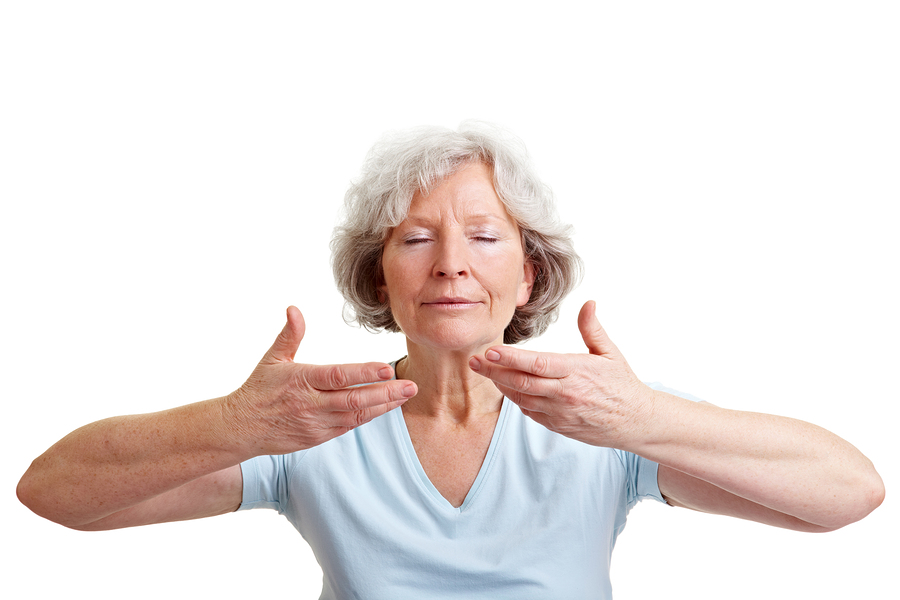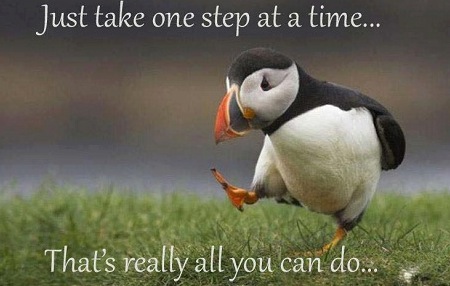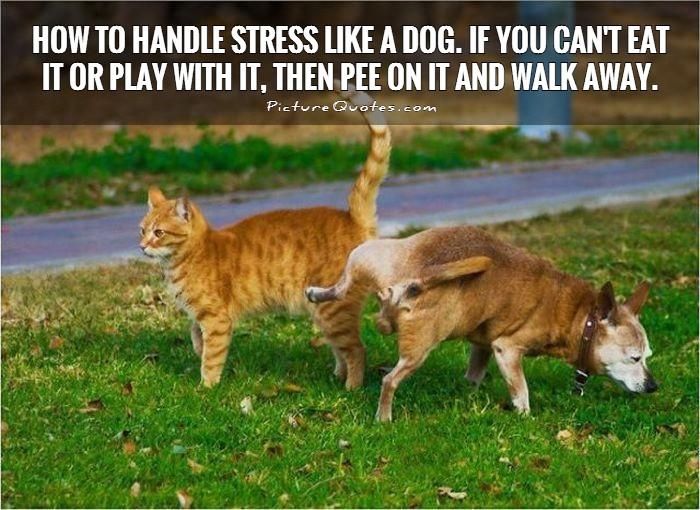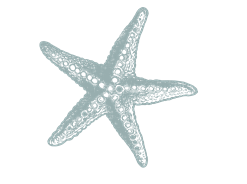| Back to Back Issues Page |
 |
|
Led Around by Your "Gotta Haves" October 21, 2015 |
Quick Relaxation ToolThe 4-7-8 (or Relaxing Breath) ExerciseThis breathing exercise by Dr. Weil is utterly simple, takes almost no time, requires no equipment and can be done anywhere. Although you can do the exercise in any position, sit with your back straight while learning the exercise. Place the tip of your tongue against the ridge of tissue just behind your upper front teeth, and keep it there through the entire exercise. You will be exhaling through your mouth around your tongue; try pursing your lips slightly if this seems awkward. Exhale completely through your mouth, making a whoosh sound. Close your mouth and inhale quietly through your nose to a mental count of four. Hold your breath for a count of seven. Exhale completely through your mouth, making a whoosh sound to a count of eight.
This is one breath. Now inhale again and repeat the cycle three more times for a total of four breaths. Note that you always inhale quietly through your nose and exhale audibly through your mouth. The tip of your tongue stays in position the whole time. Exhalation takes twice as long as inhalation. The absolute time you spend on each phase is not important; the ratio of 4:7:8 is important. If you have trouble holding your breath, speed the exercise up but keep to the ratio of 4:7:8 for the three phases. With practice you can slow it all down and get used to inhaling and exhaling more and more deeply. This exercise is a natural tranquilizer for the nervous system. Unlike tranquilizing drugs, which are often effective when you first take them but then lose their power over time, this exercise is subtle when you first try it but gains in power with repetition and practice. Do it at least twice a day. You cannot do it too frequently. Do not do more than four breaths at one time for the first month of practice. Later, if you wish, you can extend it to eight breaths. Once you develop this technique by practicing it every day, it will be a very useful tool that you will always have with you. Use it whenever anything upsetting happens - before you react. Use it whenever you are aware of internal tension. Use it to help you fall asleep. This exercise cannot be recommended too highly. Everyone can benefit from it. Blog RoundupHow to Overcome Shyness: 7 Powerful ToolsBoost Self-Confidence in 15 Minutes...or Less Can You Cure Social Anxiety?
Feel Good Stuff
Two women who had just met at a health spa were talking about their lifestyles and how they hope to stay healthy. One asked the other to detail her daily routine. “I eat moderately,” she replied, “I exercise moderately, I drink moderately, and I live moderately.” “Is there anything else you do?” her new friend asked. “Yes,” she said, “I lie extensively.” A Hindu proverb says, “Even nectar is poison if taken in excess.” I believe in moderation. But moderation takes a certain amount of self discipline. It’s about saying no from time to time. But how does it feel to never say no? To be out of control? Success and even happiness are simply not possible without some inner discipline. One hospital patient aptly described the problem. When visiting with a chaplain, this patient, who was being treated for venereal disease, said, “Reverend, my trouble is I’ve been led around by my ‘gotta haves’ all my life.” Without learning how to say no to ourselves at the appropriate times, it’s like we’re led around by our “gotta haves” all our lives. Whatever we think we gotta have this moment is what we go after. We gotta have more pleasure or less discomfort or this experience or that new thing or another glass or more of this or a bigger and better something else.... You fill in the blanks. On the other hand, some of the happiest people I know feel in control of themselves most of the time. If they overdo, their excessiveness does not become a lifestyle. If they deviate from the goals they’ve set, they soon get back on course. They know how to have fun without being led around by their gotta haves. I like the words of Bernard Baruch. “In the last analysis,” he said, “our only freedom is the freedom to discipline ourselves.” The point is -- control is going to come from somewhere. If not from ourselves, then from somebody else. Discipline is deciding not to be led around by our gotta haves. It is the task of a lifetime, an indispensable prerequisite to success, and the only way to be truly free. by Steve Goodier of LifeSupportSystem.com
Always keep in mind that a low-stress lifestyle never "just happens." Practicing relaxation and stress management techniques every day is the key to success. The more you practice, the more automatic it becomes. Stay in the (k)now, Melissa
|
| Back to Back Issues Page |







